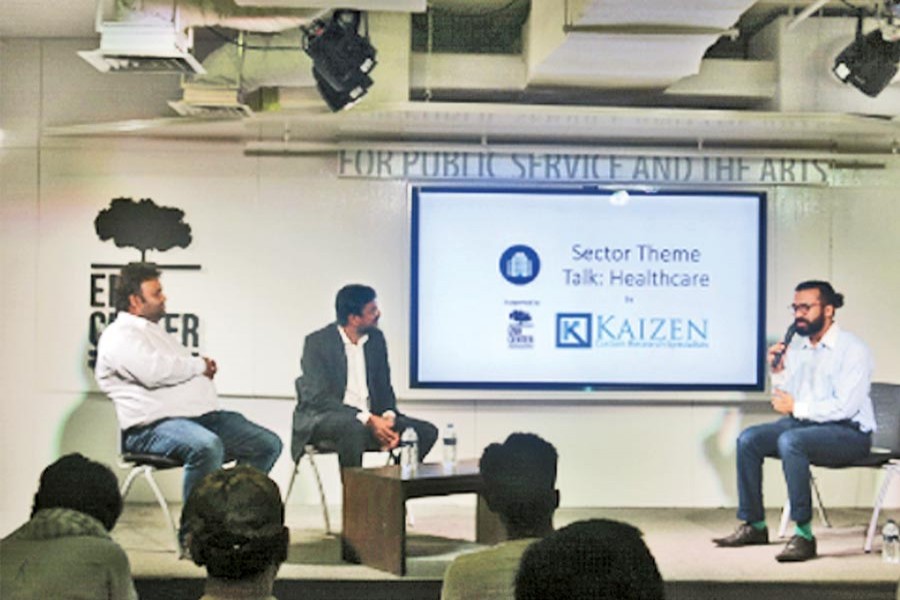Global Entrepreneurship Week (GEW) is a celebration of the innovators and job creators, who launch startups that bring ideas to life, drive economic growth and expand human welfare. The EMK Centre along with Startup Bangladesh organised various events with entrepreneurs and innovators from around the country, says a press release.
As part of this celebration, Kaizen organised two sessions, one on the furniture industry of Bangladesh on November 13, 2018 and the other one on the healthcare industry on November 14, 2018. The idea was to spur the discussion about these two sectors so that entrepreneurs have an idea about the current opportunities and challenges in these industries and to share/reflect what innovations can be made to solve some of the challenges in these industries.
The furniture industry
Over the last decade, the furniture industry has shown excellent performance by having an average of 25 per cent export growth. The sector generated employment for 2.5 million workers who directly contribute to financial inclusion. The e-commerce furniture startup scenario has also started to bolster since many of the small startups are cracking big online deals now. Even some local furniture manufacturers are expanding their span of market reach in countries like Canada, Nepal and Bhutan which is a proof that Bangladesh is making international-standard furniture. Bangladesh government recognised the potential of the industry and has declared the industry as thrust sector. In this session, the panels looked at the opportunities this sector can offer to budding entrepreneurs. The panellist for the furniture sector themed talk included Firoz Al Mamun, head of marketing-HATIL and Sushil Chandra Ghosh, head of sales, Partex Star Group. Shazeeb M Khairul Islam moderated this part of the event.
The conclusion from this panel discussion was that there is a strong need for improving the policies in the furniture industry including frameworks for design, ancillary services improvement etc. Besides, the panel agreed on the fact that the import duty needs to be reduced if we want to increase exports. The high import duty increases production cost, which ultimately reflects on the selling price, making it less attractive for foreign buyers. These issues need to be discussed and resolved if the furniture industry is to perform well.
The healthcare industry
Adopting innovations is increasingly becoming the norm across sectors including healthcare. The scope and avenues available for innovations in healthcare are plenty depending on the implementing stakeholder and the intended benefit. e.g. while hospitals may view products which help reduce costs and improve health as an innovation, patients and consumers of health care may see products that provide financial protection as innovations. Driven by the compelling needs of increasing number of people seeking healthcare services and the ever-increasing cost of providing healthcare services, many developing countries including Bangladesh have emerged as nerve centres for healthcare innovations. In this session, the panellist discussed the scope this sector can provide to an entrepreneur. The panellist for the healthcare sector themed talk included Mustafa M Hasan, head of social enterprise (Health Nutrition and Population), Brac, Dr Khondaker A Mamun - founder and chairman, CMED and F Bari Himel - technical expert, Ministry of Health and Family Welfare. Zunaed Rabbani moderated this part of the event.
The two main outcomes from this panel discussion were the need for promoting preventive healthcare and increasing awareness about public healthcare. At present, we have many non-communicable diseases, and the treatment of these are expensive. That is why it is crucial to promote preventive healthcare like a healthier lifestyle and food. In addition, there is lack of awareness about the improved healthcare facilities in the public sector. The government has been increasingly spending on the improvement of healthcare by improving infrastructure, training doctors etc. However, most people are not aware of this and hence stay away from accessing public healthcare facilities.
The writer is final year student of BBA at Bangladesh University of Professionals.
He can be reached at [email protected]


